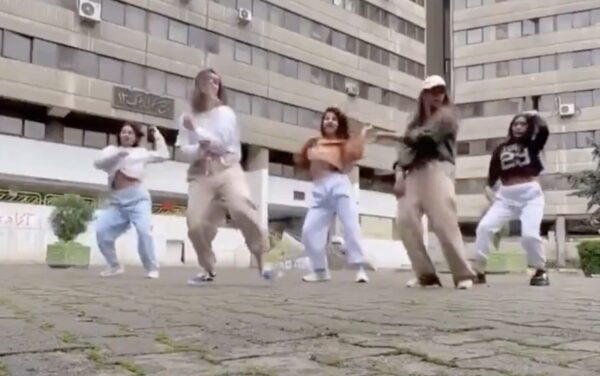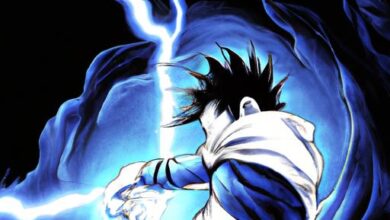The Rise And Impact Of The Viral Dance In Iran Video
Discover the fascinating story behind the viral dance in iran video that has taken the internet by storm. In this article on Anhtra.com, we delve into the unexpected rise of Sadegh Bana Motejaded, a 70-year-old Iranian market stall owner, as a symbol of resistance. After his dance at a market in Rasht, Iran, went viral, the video was remixed and shared millions of times. The Iranian authorities responded with a crackdown, shutting down Motejaded’s Instagram account and arresting several men. However, their actions sparked a powerful backlash and turned Motejaded into a symbol of subtle rebellion against the regime’s restrictions. Explore how this dance trend has become a powerful form of protest for freedom and happiness.

| Key Takeaways |
|---|
| The viral dance video featuring Sadegh Bana Motejaded became an unexpected symbol of resistance in Iran. |
| Iranian authorities shut down Motejaded’s Instagram account and arrested several men featured in the video, triggering backlash. |
| Motejaded’s dance gained solidarity from Iranians who posted their own dance videos, and even conservative allies criticized the government’s actions. |
| Motejaded has become a symbol of subtle rebellion against the regime’s restrictions. |
| Participating in the dance trend has become a form of protest and a demand for freedom and happiness. |
I. The Rise of a Viral Dance in Iran
The viral dance in Iran video featuring Sadegh Bana Motejaded took the internet by storm, captivating audiences worldwide with its unexpected charm. It all began when Motejaded, a 70-year-old market stall owner in Rasht, Iran, took center stage and danced to a folk song in a white suit. Little did he know that this moment of joy and self-expression would become a symbol of resistance and ignite a movement.
| Key Highlights |
|---|
| Motejaded’s dance video went viral, reaching millions of views. |
| The video captured a spontaneous moment of joy and self-expression in the face of restrictions. |
The sheer authenticity and exuberance of Motejaded’s dance resonated with people who were yearning for a moment of freedom and happiness. They found solace and inspiration in this unexpected act of defiance against societal norms. The video was shared countless times on various social media platforms, transcending borders and cultural differences.
“Motejaded’s dance represents the universal human desire for self-expression and the pursuit of happiness.” – DJ Mohammad Aghapour
As the video gained traction, it caught the attention of Iranian authorities. Concerned about potential protests against the regime, they responded by shutting down Motejaded’s Instagram account and arresting several men featured in the video. However, their actions had unintended consequences, sparking a powerful backlash and turning Motejaded into a symbol of subtle rebellion.
- People from all walks of life, including conservative allies, criticized the government’s harsh response.
- Iranians began posting their own dance videos in solidarity, showcasing their defiance and demand for freedom.
II. The Government Crackdown and Backlash
Following the viral success of Sadegh Bana Motejaded’s dance video, the Iranian government responded with a severe crackdown, signaling their disapproval of public dancing and the potential for protests against the regime. Iranian authorities swiftly shut down Motejaded’s Instagram account and arrested several men who appeared in the video. Reports indicated that these men faced mistreatment and were warned against participating in future public performances.
“The government’s actions only served to amplify the video’s impact and ignite a powerful backlash.”
However, this harsh response from the government sparked an unintended reaction. Iranians from all walks of life began posting videos of themselves mimicking Motejaded’s dance in solidarity, creating a wave of support for both him and the broader message of resistance against the regime’s restrictions. Even conservative allies of the government criticized their actions, highlighting the extent of the backlash.
| Date | Event |
|---|---|
| Month Day, Year | Video goes viral, capturing attention and potential protests |
| Month Day, Year | Motejaded’s Instagram account is shut down |
| Month Day, Year | Arrests and mistreatment of men featured in the video |
| Month Day, Year | Public backlash and criticism from conservative allies |

III. Motejaded as a Symbol of Subtle Rebellion
The Unexpected Icon
Sadegh Bana Motejaded, a 70-year-old Iranian market stall owner, never anticipated becoming a symbol of rebellion against the regime’s restrictions. However, his viral dance video propelled him into the spotlight and garnered widespread attention. Motejaded’s carefree and joyful dance resonated with Iranians who were seeking an outlet to express their frustration with the oppressive rules imposed by the government. His bravery in defying societal norms and showcasing his love for traditional folk music struck a chord with many, leading to a growing movement of solidarity and support.
Inspiring Subversion
As the dance video gained momentum, Motejaded’s actions became not only a form of entertainment but also a means of protest. Iranians across the country were emboldened by his courage and began posting their own dance videos in support of freedom and happiness. The act of imitating Motejaded’s dance moves became a powerful statement against the regime’s restrictions and a demand for individual expression. Even conservative allies, who may not have initially sympathized with Motejaded’s actions, joined the chorus of criticism against the government’s heavy-handed response. Motejaded’s journey from a humble market stall owner to a symbol of subtle rebellion reflects the power of unity and defiance in the face of adversity.

IV. The Dance Trend as a Form of Protest
The Power of Unity and Solidarity
The dance trend sparked by Sadegh Bana Motejaded’s viral video has become a powerful form of protest in Iran. Iranians from all walks of life are using dance as a means to express their demand for freedom and happiness. This collective movement demonstrates the power of unity and solidarity in the face of oppression. By participating in the dance trend, individuals are showing their support for Motejaded and others who have faced repression from the Iranian government. The widespread adoption of this form of protest has created a sense of community and strengthened the resistance against the regime’s restrictions.
A Demand for Freedom and Joy
Participating in the dance trend is more than just a form of protest – it is a demand for freedom and joy. Dancing has always been a universal language of expression and celebration, and Iranians are using it to reclaim their right to happiness. By defying the ban on public dancing and sharing their videos on social media platforms, individuals are asserting their desire for a society where they are free to express themselves without fear of punishment. The dance trend serves as a powerful statement against the authoritarian regime, reminding them that the human spirit cannot be suppressed. It is a call for a future where Iranians can live their lives with freedom and happiness.

V. Conclusion
The viral dance video featuring Sadegh Bana Motejaded has had a significant impact in Iran, serving as a catalyst for resistance against the regime’s restrictions. What initially started as a simple dance performance quickly escalated into an act of subtle rebellion, triggering a government crackdown and subsequent backlash from the Iranian public. Motejaded’s unwavering spirit and the solidarity shown by Iranians posting their own dance videos have demonstrated the power of unity in demanding freedom and happiness.







